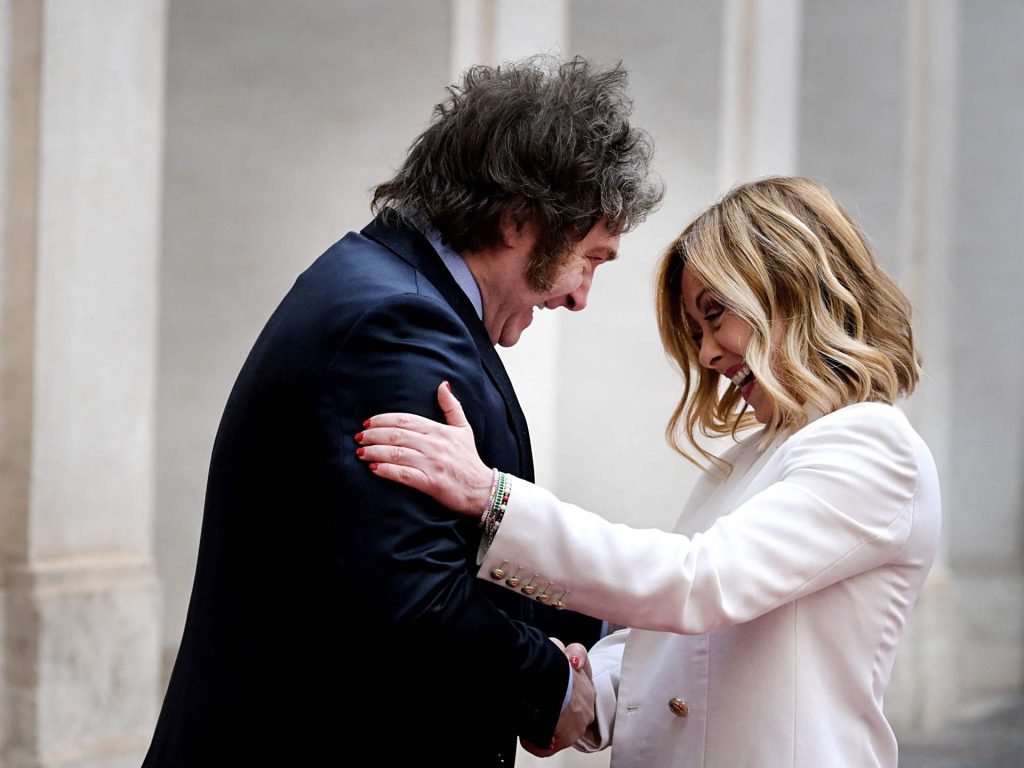Far-right “outsider” Javier Milei was elected as Argentina’s president in November, and Italian Prime Minister Giorgia Meloni was the first European leader to congratulate him. In February, Milei visited Italy, where the two leaders shared their support for each other. While they both appear to be socially conservative “populists” who oppose abortion and the LGBT community, their ideologies differ significantly. Meloni leads a nationalist party with links to fascism, while Milei identifies as a libertarian and “anarcho-capitalist”. The bond between them seems to be based on their hypocritical “neoliberal populism” serving Western imperialism rather than shared ideological convictions.
Milei won the presidential election by promising to reset the system and reduce state spending through privatisation, cutting inflation, and putting money in the pockets of Argentinians. However, his policies have only increased misery for the public while benefiting the elite. He has made unpopular decisions such as cutting state subsidies and reducing the budget for public universities. Despite plummeting approval ratings, Milei continues to push reforms that strip workers of rights and privatise state-owned enterprises, attracting investors but causing backlash among the public. Meloni, on the other hand, introduced populist measures to tax banks but later watered them down in line with neoliberal interests, betraying the populist facade she presented to her supporters.
Meloni’s actions regarding Italy’s banks have resulted in criticism and questions about the sincerity of her populist agenda. She has shifted from a protectionist stance to advocating for privatisation, indicating a departure from her party’s historical statist approach. While Meloni’s rhetoric may hint at resistance to the neoliberal status quo, her actions demonstrate a commitment to maintaining the existing economic system. Similarly, Milei’s support for neoliberal consensus and alignment with US foreign policy contradicts his populist image, showing a preference for Western imperialism over addressing the needs of his country.
Both Milei and Meloni have demonstrated a tendency towards hypocrisy in their policies, especially in their foreign relations. Despite their initial populist rhetoric, they have both aligned themselves with Western powers like the US and EU, prioritising geopolitical interests over the well-being of their populations. Meloni’s shift from euroscepticism to alignment with European representatives highlights the inconsistency between her populist claims and actions. Rather than addressing urgent socio-economic issues, both leaders are preoccupied with countering perceived threats from Russia and China, neglecting the pressing needs of their citizens.
In conclusion, the similarities between Milei and Meloni lie in their adherence to the neoliberal order and their neglect of the immediate issues affecting their countries. Despite their differences in ideology, both leaders prioritize maintaining the status quo and appeasing Western powers over enacting meaningful change for their citizens. The friendship between Meloni and Milei is based on their shared commitment to serving the interests of Western imperialism, rather than any genuine belief system. As Italy and Argentina grapple with economic challenges and social unrest, the populist leaders of both countries appear more focused on geopolitical posturing than addressing the pressing needs of their people.















